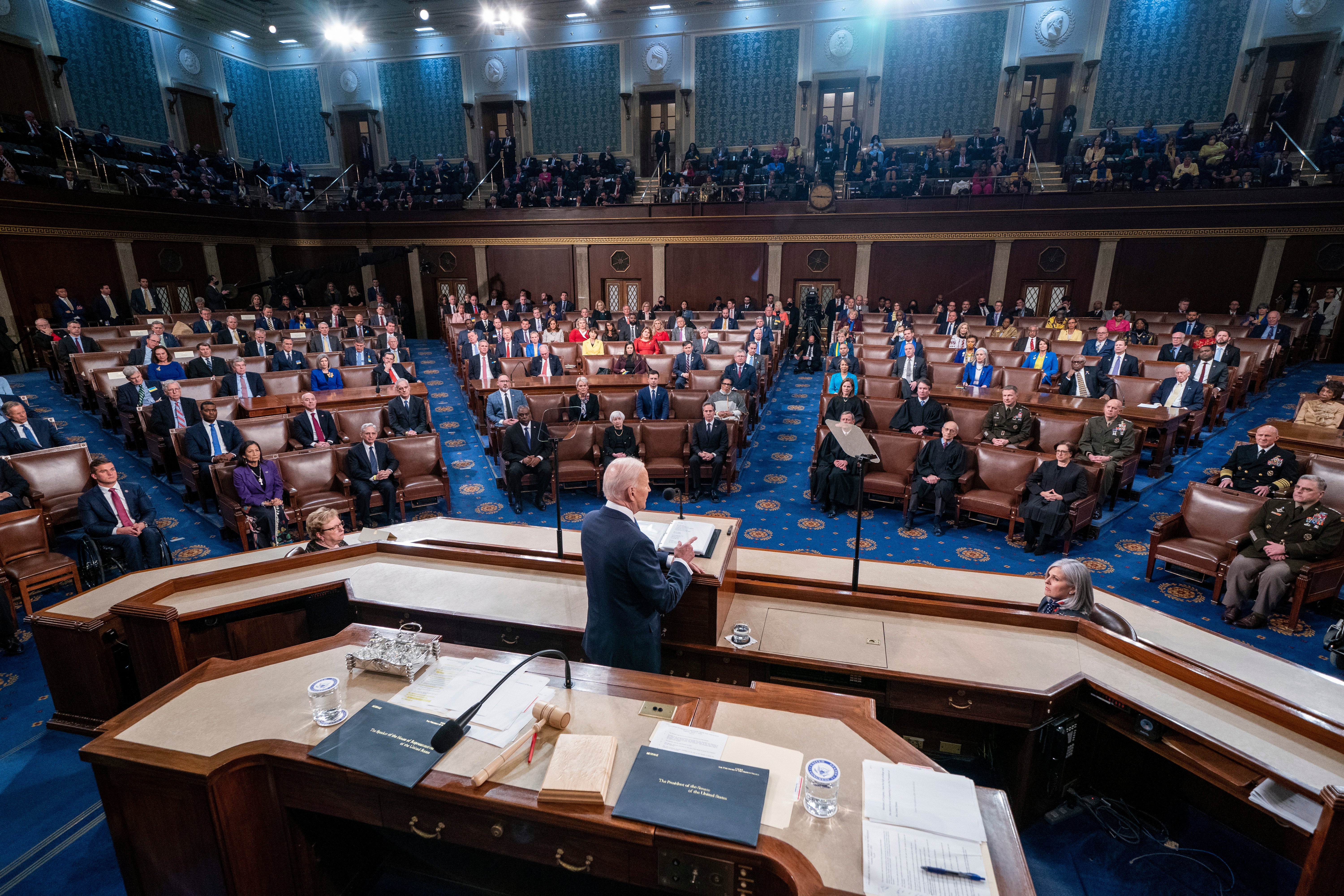State of the Union? Congress doesn't fully reflect diversity
When lawmakers gather for President Joe Biden’s State of the Union address, the Republican side of the aisle will look slightly different than in years past

When lawmakers gather for President Joe Biden's State of the Union address, the Republican side of the aisle will look slightly different than it did a few years ago.
Rather than row after row of white men in suits, the House Republican majority increasingly has added Black, Latino and female elected officials to their ranks, an effort toward bolstering GOP diversity that's helping to make the new Congress the most racially and ethnically diverse ever.
It's a slow yet unsteady progress toward creating a Congress more reflective of America. But it also spotlights a still stark gap on the House Republican side, where the new majority remains made up mostly of white, male lawmakers, which does not fully capture the changing demographics of the country.
“Diversity matters," said Debbie Walsh, director of the Center for Women and Politics at Rutgers University.
“Every person who serves in office brings with them a set of life experiences that shape their policy priorities, that shape how they see the world,” Walsh said. “It’s not that the experiences of white men don’t matter, but they don’t matter — they shouldn’t matter — more than everybody else.”
House Speaker Kevin McCarthy is largely responsible for making strides at trying to diversify the Republican House. The California leader personally recruited and helped to elect more female candidates and people of color who delivered majority control.
McCarthy and his team worked to diversify their ranks during the 2022 midterm elections with dozens of Black, Hispanic and Asian American nominees on ballots nationwide, some of whom won office.
Still, compared with the diversity on the Democratic side of the aisle, the Republican tally remains slim.
There are four Black Republicans in the House — twice as many as in the last session. That's a record for Republicans in the 20th and 21st centuries.
But it's still fewer Black Republicans in the House than during Reconstruction, the era that followed the Civil War. As many as seven Black Republicans served in the House during the 1875-77 session, according to the U.S. House Historical Office, and the House membership overall was much smaller.
Women are making steady gains in the Republican Party in the House, with 33 GOP women in the House, according to the Center for Women in American Politics. That's up from 13 House Republican women in 2019.
But there are no Black Republican women in the House, compared with 27 Black women on the Democratic side, including some who have been powerful leaders and chairwomen wielding gavels.
Republicans count five Latina women and two Asian Americans, a fraction of those the Democrats have elected, according to the Center for Women and Politics.
While the House freshman class includes seven new Republican women, the gains were essentially offset by six Republican women leaving, the center said in its analysis of the new Congress.
House Republicans have held steady with about a dozen Latino and Hispanic lawmakers, but overall the proportion of Latinos in Congress is less than in the U.S. population.
“This continues a long-running trend toward more racial and ethnic diversity on Capitol Hill: This is the seventh Congress to break the record set by the one before it,” said Pew Research Center, including senators in its tally.
But Pew reports a vast divide by party for the racial and ethnic minority members in the new Congress: 80% are Democrats while 20% are Republicans. The report said that's similar to the last session of Congress. At that time, 83% of non-white lawmakers were Democrats and 17% were Republicans.
Pew said 13 members of Congress identify as lesbian, gay or bisexual, the highest number openly identified in history. Among the 11 openly gay or lesbian members of the House, just one is a Republican, Rep. George Santos of New York.
The Senate shows strides, too, with 25 women this session, including nine Republican female senators, matching the record set in 2020, according the Center for Women and Politics.
Among the 100 senators, there is one Black Republican, Sen. Tim Scott of South Carolina, and two Black Democrats, Sen. Cory Booker of New Jersey and Sen. Raphael Warnock of Georgia.
There are no Black women elected to the Senate.
There are six Latino or Hispanic senators, including two Republicans; and there are two Asian American senators, both Democrats.
One new Republican, Sen. Markwayne Mullin of Oklahoma, “a member of the Cherokee nation, is the first American Indian to serve in the Senate in almost two decades,” the Pew Report said.
"I wouldn't call it strides," said Rashad Robinson, president of the Color of Change, a racial justice organization.
“We have complicated problems in this country that require solutions that come from a range of perspectives and that require us to think seriously about how we move forward,” he said.
___
Follow AP’s coverage of the State of the Union address at: https://apnews.com/hub/state-of-the-union-address
Bookmark popover
Removed from bookmarks